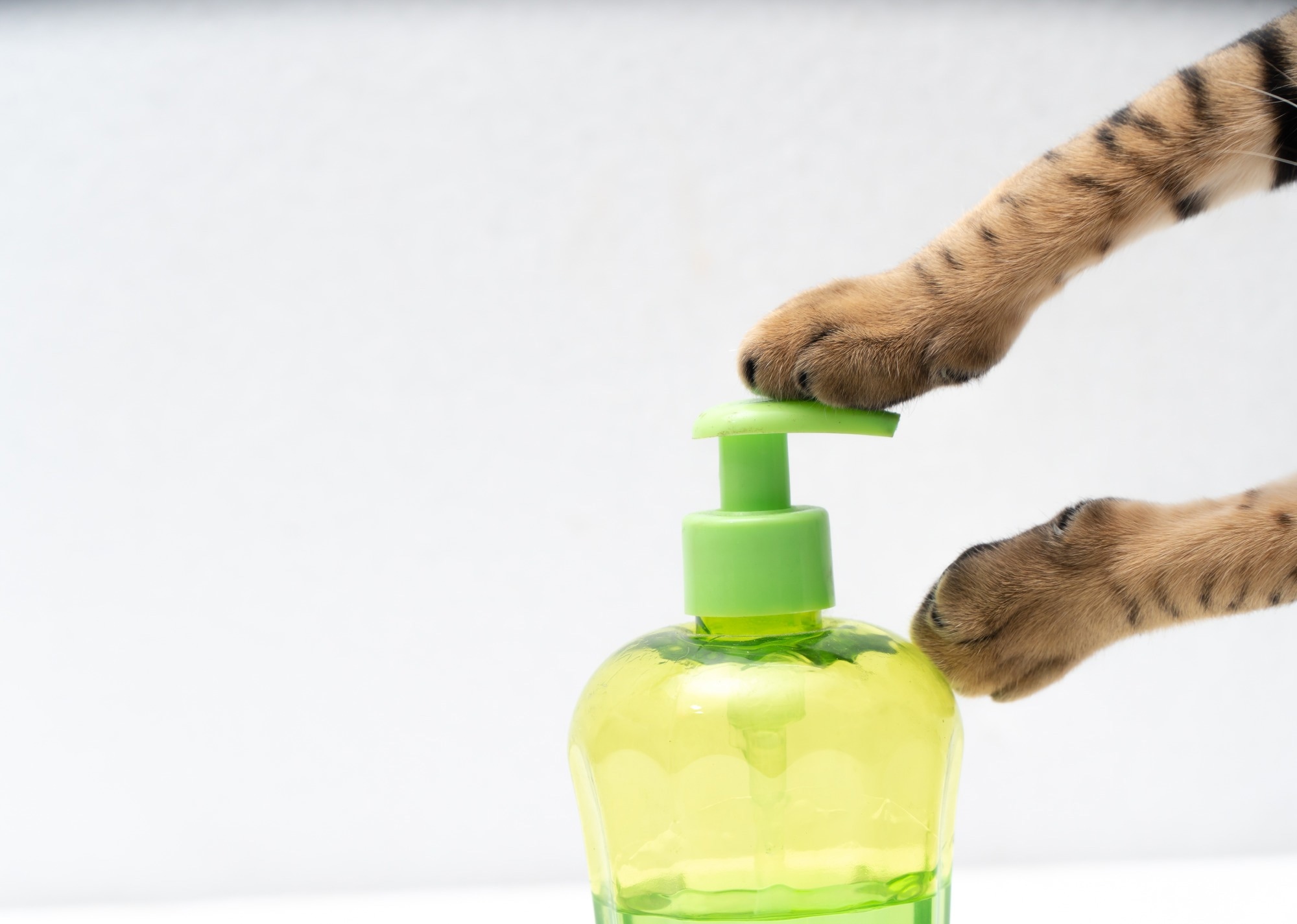The precise mechanisms underlying the emergence of new-onset diabetes among coronavirus disease 2019 (COVID-19) patients are unknown; however, it is possibly due to several complex and interrelated etiologies, such as impaired glucose disposal as well as insulin secretion, stress hyperglycemia, steroid-induced diabetes, and preadmission diabetes. In addition, prior research has shown that SARS-CoV-2 causes temporary hyperglycemia and reduced pancreatic ß-cell function in the context of epidemic-derived pneumonia.
 Study: SARS-CoV-2 Infection Causes Hyperglycemia in Cats. Image Credit: Khon Thai Phap / Shutterstock
Study: SARS-CoV-2 Infection Causes Hyperglycemia in Cats. Image Credit: Khon Thai Phap / Shutterstock
About the study
The present study offered a comprehensive analysis of hyperglycemia associated with SARS-CoV-2 infection in household cats.
In order to investigate the replication and pathogenesis of SARS-CoV-2 in cats, nine cats between 70 and 100 days of age were categorized into infection and control cohorts. Cats from the infection cohort were infected with 2×107 TCID50/mL of the HB-01 strain. Using the same techniques, the supernatant of the Vero E6 cell culture was used to simulate infection in the cats belonging to the control group. The clinical signs of the subjects were then observed for seven days. On the third, fifth, and seventh day post-infection, two infected cats and one sham-infected cat were euthanized to allow the collection of samples.
To determine if SARS-CoV-2 could affect glucose metabolism, the team tested the cats' blood glucose levels prior to and following the viral infection. Immunohistochemistry triple labeling for viral nucleocapsid protein (NP), insulin, and glucagon was also performed. A vaccine-protective experiment was conducted to confirm if SARS-CoV-2 induces hyperglycemia in cats. Six cats were inoculated with inactivated SARS-CoV-2 three times. Three cats were immunized under identical conditions with the culture medium as a control.
Results
At three, five, and seven days post-infection (dpi), viral ribonucleic acid (RNA) was detected in the turbinates, bronchi, trachea, and all lung lobes of the infected cats. The load of the viral RNA in the lung tissue was comparatively lesser than that of the upper respiratory tract. Notably, pancreatic tissues from all infected cats yielded viral RNA-positive results at five and seven dpi. However, the liver, kidney, spleen, heart tissues, and testis tested negative. The measurement of the viral titers showed that infectious viruses replicated in the turbinates, lung tissues, and the tracheae but not in the liver, heart, small intestine, spleen, pancreas, brain, kidneys, and submaxillary lymph nodes.
The vast majority of cats infected with SARS-CoV-2 displayed hyperglycemia, but none of the subjects in the control group did. This demonstrated a connection between COVID-19 and glucose levels in the blood. Microscopic examination and anatomopathological characteristics revealed that COVID-19 did not cause any visible pathological alterations in the cat pancreas. Moreover, islets were easily visible without detecting any abnormal or diseased cells. Furthermore, immunohistochemical labeling revealed the presence of the SARS-CoV-2 NP among the pancreatic islet cells of infected cats. Notably, SARS-CoV-2 NP was found in the turbinates, tracheae, soft palates, bronchioles, and alveolar epithelial cells of infected cats. However, NP was not found in liver, kidney, or brain tissue samples.
The team found several viral NP-glucagon double-positive cells with only a small number of viral NP-insulin double-positive cells. Similarly, identical outcomes were noted when antibodies specific to the SARS-CoV-2 spike protein were utilized. In addition, triple immunohistochemical staining for angiotensin converting enzyme-2 (ACE-2), viral NP, and glucagon revealed an abundance of triple-positive cells. Isolated pancreatic tissue from uninfected cats lacked SARS-CoV-2 NP immunopositivity. Infected cats having high SARS-CoV-2 burden are susceptible to pancreatic SARS-CoV-2 infection, such as infection of endocrine and exocrine cells.
Following three rounds of vaccination with inactivated SARS-CoV-2, the serum-neutralizing antibody titer in inoculated cats reached 1:640. The reverse transcription-quantitative polymerase chain reaction (RT-qPCR) data indicated that inoculated cats had a lower virus load than control animals. Moreover, SARS-CoV-2 nucleic acid was not detected in the pancreatic tissue of inoculated cats. Similarly, post-immunization, the blood glucose levels of challenged cats showed no considerable change. On the other hand, the blood glucose levels of the control subjects rose significantly. Infection with SARS-CoV-2 most likely caused an increase in blood glucose levels in affected cats.
Conclusion
The study findings showed an unexpected and atypical rise in blood glucose levels in cats infected with SARS-CoV-2 under laboratory circumstances. Additionally, SARS-CoV-2 protein and RNA were found in the pancreas of these cats. The team also highlighted the cellular localization pattern exhibited by SARS-CoV-2 among pancreatic endocrine cells.
Journal reference:
- Yufei Zhang, Jindong Gao, Kun Huang, Ya Zhao, Xianfeng Hui, Ting Wang, Changmin Hu, Xiaomei Sun, Ying Yang, Chao Wu, Xi Chen, Zhong Zou, Lian zong Zhao, Meilin Jin, SARS-CoV-2 Infection Causes Hyperglycemia in Cats, The Journal of Infectious Diseases, Volume 226, Issue 9, 1 November 2022, Pages 1568–1576, DOI: https://doi.org/10.1093/infdis/jiac143, https://academic.oup.com/jid/article/226/9/1568/6570828